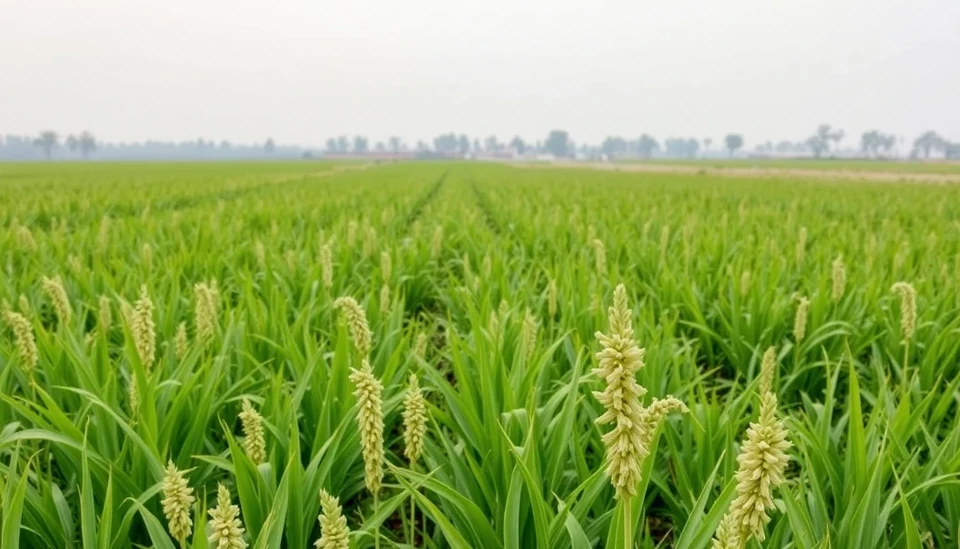
As global climate patterns continue to shift, a concerning trend has emerged that could jeopardize food security worldwide. Recent analyses reveal that approximately a quarter of the world's crops are now facing significant water stress. This alarming phenomenon comes at a time when food production needs to ramp up due to an ever-increasing population and shifting dietary habits that heavily rely on freshwater resources.
The Intergovernmental Panel on Climate Change (IPCC) has emphasized that water scarcity is rapidly becoming one of the most pressing issues in agriculture. Factors contributing to this situation include rising temperatures, prolonged droughts, and unpredictable rainfall patterns, which all threaten crop yields and agricultural sustainability. The most affected regions, particularly in Asia, Africa, and Central America, are experiencing firsthand the detrimental impacts of diminishing freshwater supplies.
In specific terms, studies indicate that water scarcity could drastically reduce the yields of staple crops such as wheat, maize, and rice, which are vital to feeding billions around the globe. The ability to secure sufficient water for irrigation has become more critical than ever, as farmers struggle to maintain production levels under these challenging conditions. Unsustainable water management practices further exacerbate the crisis, leaving many communities at risk of severe food shortages.
In response to these challenges, many governments and agricultural organizations are exploring innovative techniques focused on sustainable water management. These include advanced irrigation systems and drought-resistant crop varieties that are better adapted to arid conditions. Additionally, implementing policies aimed at conserving water resources and promoting efficient agricultural practices is paramount. If strategies are not adopted on a broader scale, the repercussions on the global food supply chain could be catastrophic.
Moreover, while the threats posed by water stress are growing, the agricultural sector is also at the forefront of discussions regarding climate change mitigation. The adoption of practices that conserve water not only helps to secure crop yields but also plays a crucial role in reducing carbon footprints. As sectors grapple with the realities of climate change, it is critical that agriculture remains resilient and adaptable to ensure that food systems can sustain future generations.
The presence of water stress in agriculture is not just an environmental issue but also a socio-economic one, intertwining with global food prices and national economies. As water scarcity impacts crop yields, it is likely to lead to higher food prices, further marginalizing vulnerable populations who depend on affordable food sources. Therefore, international cooperation and investment are essential to addressing this complex problem effectively.
In conclusion, the mounting threat of water stress on agricultural crops is a clarion call for immediate action in both policy and practice. By prioritizing sustainability, advancing technological innovation, and fostering global partnerships, the world can better navigate these challenges to secure food for all.
#WaterStress #GlobalCrops #FoodSecurity #ClimateChange #SustainableAgriculture #IrrigationTech #InnovativeFarming #WaterConservation
Author: Laura Mitchell




